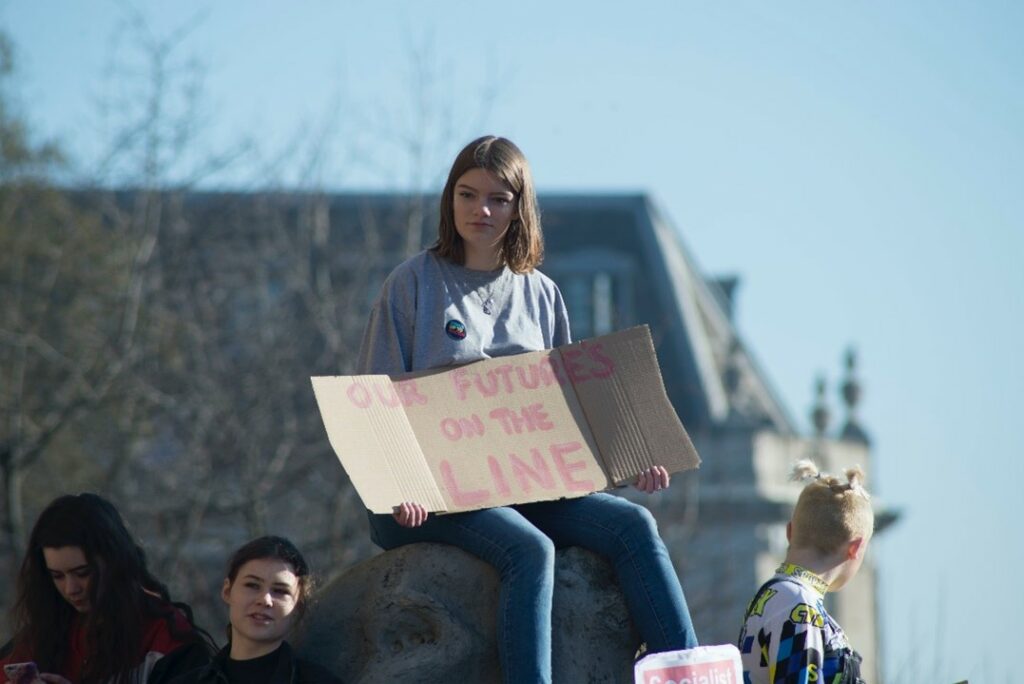
As society evolves, today’s young people are faced with unprecedented challenges, such as climate change, social inequalities, economic crises and problems of governance. In this context, it is essential to understand how young people engage civically to build a more inclusive, just and prosperous future.
Youth civic engagement: a catalyst for social change
Young people’s civic engagement reflects a generation aware of the issues of the day and keen to get actively involved in bringing about positive change. According to E-graine’s guide to youth engagement, civic engagement involves the active participation of young people in public life, whether at the local, national or international level. Young people’s civic engagement is a fundamental pillar of democracy and sustainable development. This involvement can take different forms, ranging from voluntary work in associations to participation in social or political movements.
Young people’s civic engagement is a crucial factor in building a more balanced world where everyone’s voice is heard and taken into account. Through associative, political and digital actions, young people play an essential role in social transformation and finding solutions to the challenges of the 21st century. To foster this commitment, it is imperative to put in place inclusion policies, strengthen support mechanisms, and promote quality civic education that encourages young people’s active participation. By working with young people and valuing their commitment, we can build a more cohesive, democratic and sustainable society where each individual contributes to creating a promising future for all.
But how are youngsters becoming civically involved?
Voluntary work
More and more young people are getting involved in associations or non-governmental organisations, contributing to social, environmental or humanitarian projects. These voluntary actions enable them to develop their skills, strengthen their social network and actively solve concrete problems in their community, as highlighted in the Venice Commission report.
Political involvement and electoral participation
Young people’s participation in politics and electoral processes is essential to ensure balanced democratic representation. More and more young people are turning to political involvement by joining political parties, taking part in election campaigns, or even standing for election. By expressing their voices and concerns, young people are helping to shape public policy and define their country’s future.
Digital engagement and online mobilisation
With the advent of social media and digital platforms, young people have found a powerful way to express themselves and mobilise around the causes they care about. Online citizen movements, virtual petitions and digital awareness campaigns have become essential mobilisation tools for young people keen to make a positive impact in the world (Barrett, M., UN Chronicle, 2018).
Youth civic engagement offers promising opportunities for society, but it also faces a number of challenges:
Lack of resources and institutional support
Some young people may encounter financial or logistical obstacles to getting involved in social or political projects, which means that support and guidance mechanisms need to be strengthened.
Distrust of institutions
Some young people may feel distrustful of traditional political and social structures, requiring reflection on how to strengthen their trust and involvement.
Exclusion of certain categories of young people
Young people from disadvantaged backgrounds or ethnic minorities may feel marginalised in civic engagement processes, highlighting the need to promote wider and fairer inclusion.
References:
- Barrett, M. (January 2018). “Young People’s Civic and Political Engagement and Global Citizenship”. No. 4 Vol. LIV 2017, Global Citizenship. UN Chronicle, United Nations. https://www.un.org/fr/chronicle/article/lengagement-civique-et-politique-des-jeunes-et-la-citoyennete-mondiale
- Le Congrès des pouvoirs locaux et régionaux. (2013). “Jeunesse et démocratie: l’évolution de l’engagement politique des jeunes”. https://rm.coe.int/1680719881
- E-Graine. (n.d.). “Guide de l’engagement des jeunes”. https://www.e-graine.org/le-guide-de-lengagement-des-jeunes/#downloadengagement
